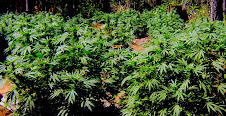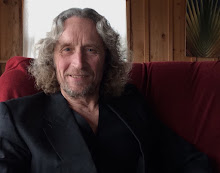Ten years of tax-funded treason is long enough. The following misinformation has been on-line for ten years, come October 2011. Bold type designates the falsehoods and intentionally misleading definition of Cannabis "hemp" by the DEA.
DEA Clarifies Status of Hemp in the Federal Register, October 9, 2001
The Drug Enforcement Administration (DEA) today announced rules to clarify the legal status of “hemp” products. “Hemp” is part of the cannabis plant, which is also known as marijuana. * The rules published in today’s edition of the Federal Register explain the circumstances under which “hemp” products are subject to control under federal law.
“Hemp” and marijuana are actually separate parts of the species of plant known as cannabis.* Under federal law, Congress defined marijuana to focus on those parts of the cannabis plant that are the source of tetrahydrocannabinols (THC). THC is the hallucinogenic* substance in marijuana that causes the psychoactive effect or “high.” The marijuana portions of the cannabis plant include the flowering tops (buds), the leaves, and the resin of the cannabis plant. The remainder of the plant — stalks and sterilized seeds — is what some people refer to as “hemp.”* However, “hemp” is not a term that is found in federal law.*
DEA Administrator Asa Hutchinson stated that “many Americans do not know that hemp and marijuana are both parts of the same plant and that hemp cannot be produced without producing marijuana.”
While most of the THC in cannabis plants is concentrated in the marijuana, all parts of the plant, including hemp, have been found to contain THC. The existence of THC in hemp is significant because THC, like marijuana, is a schedule I controlled substance. Federal law prohibits human consumption and possession of schedule I controlled substances. In addition, they are not approved by the Food and Drug Administration for medical use.
The rules that DEA is publishing today explain which hemp products are legal and which are not. This will depend on whether the product causes THC to enter the human body. If the product does cause THC to enter the human body, it is an illegal substance that may not be manufactured, sold, or consumed in the United States. Such products include “hemp” foods and beverages that contain THC.
If, however, the product does not cause THC to enter the human body, it is a noncontrolled substance that may lawfully be sold in the United States. Included in the category of lawful hemp products are textiles, such as clothing made using fiber produced from cannabis plant stalks. Also in the lawful category are personal care products that contain oil from sterilized cannabis seeds, such as soaps, lotions, and shampoos.
In issuing these rules, DEA has attempted to strike a fair balance between protecting the health and safety of all Americans and accommodating legitimate industry."
========================
And with that, the intractable lead agency sitting arrogantly at the head of a monumentally counter-productive "drug war" slams the lid on the world's most valuable agricultural resource, obviating the possibility of Cannabis farming and gardening in the United States and much of the world, where it could do a lot of good.
The truth is that the psychoactive strains of Cannabis are known as 'marijuana.' There are more than 400 active compounds in marijuana that work synergistically to afford unique and essential therapeutic benefit with a high degree of safety. Nutritionally, Cannabis is the only common seed with three essential fatty acids and is the best available source of organic vegetable protein on Earth. There is no THC in the seeds of either strain of Cannabis.
"Hemp" refers to the low-THC strains of Cannabis that contain very little THC compared to the marijuana strains. Hemp and marijuana are distinct, with very different cultivation methods used to grow very different crops.
There is no measurable THC in the steam distilled essential oils of hemp, yet this tremendously therapeutic and useful substance is still prohibited in the U.S.. For example, cannabinoids found in hemp have been shown to be as effective in treating breast cancer as chemotherapy with much less trauma inflicted on the patient.
Contrary to the published statement by the DEA, the term "hemp" is used to identify a "strategic food resource" in six Executive Orders signed by Presidents Roosevelt, Truman, Eisenhower, Kennedy, Nixon and Clinton.
Misrepresenting a "strategic food resource" as a "Schedule One drug" is a threat to national security, imposing scarcity on critically important domestic agricultural production.
skip to main |
skip to sidebar

Drugs don't make seeds. Herbs do.

Here the spacing between hemp stalks is even more apparent. Inches apart, not feet.

Marijuana plants are multi-branched, planted six feet apart.

This is a field of marijuana. Note these are multi-branched, exclusively female, grown with plenty of room between each plant.

This is "industrial hemp" grown in vast swaths, planted inches apart, pollen-producing males & seeded females mixed. Pollen from this field would make seeds in marijuana plants, rendering them much less salable on the black market. If the DEA really wanted to impact the marijuana trade they wouldn't be pulling up feral hemp in the midwest, they'd be encouraging American farmers to plant hemp, to naturally balance high- and low-THC producing strains of Cannabis.


Competition from chemically-based industries are the true motivation behind prohibition of industrial hemp.
14. Barack Obama, Executive Order 13603 - National Defense Resources Preparedness
17.Strategic and Critical Materials 2013 Report on Stockpile Requirements
http://mineralsmakelife.org/assets/images/content/resources/Strategic_and_Critical_Materials_2013_Report_on_Stockpile_Requirements.pdf

Preying Mantis licking hemp resin
Freedom to farm "every herb bearing seed" is the first test of religious freedom. How bad do things have to get before all solutions are considered?
PayPal
Help me help you help everyone...
If you find value in this work, please feel invited to share the good news, or if you can, lend practical support using PayPal. There is something we all can do to heal our Mother Earth. One person can make a difference but one person can’t make a difference by themselves. 🙏
Cannabis is essential not illegal.

Drugs don't make seeds. Herbs do.
Hemp harvesting in France

Here the spacing between hemp stalks is even more apparent. Inches apart, not feet.
Can you tell the difference...?
Marijuana plants are multi-branched, planted six feet apart.
"Swiss mix" marijuana

This is a field of marijuana. Note these are multi-branched, exclusively female, grown with plenty of room between each plant.
Harvesting Hemp, Noirmoutier, France 2003

This is "industrial hemp" grown in vast swaths, planted inches apart, pollen-producing males & seeded females mixed. Pollen from this field would make seeds in marijuana plants, rendering them much less salable on the black market. If the DEA really wanted to impact the marijuana trade they wouldn't be pulling up feral hemp in the midwest, they'd be encouraging American farmers to plant hemp, to naturally balance high- and low-THC producing strains of Cannabis.
"In God We Trust"
Mission Statement
The mission of the California Cannabis Ministry is to identify Cannabis agriculture as integral to a free society and essential for human survival.
Boreal Forests of the world, "The Taiga" Region
Hemp climate zone map

A word from brother Paul
The real money

Competition from chemically-based industries are the true motivation behind prohibition of industrial hemp.
Start your own individual ministry.
The California Cannabis Ministry is meant to serve everyone, as an individual expression of our Article One, Bill of Rights, "First Freedom." The freedom of religion afforded by the United States Constitution secures our natural, god-given, self-evident rights that are also also guaranteed by several international human rights treaties.
Anyone who has genuine appreciation for the Cannabis plant, for any or all of its many uses and benefits, is reminded that deep in our hearts, we are all our own ministers. I trust that others will be inspired by my example, but everyone makes their own choices. California Cannabis Ministry encourages everyone to start their own individual ministries. I believe it is spiritually and legally meaningful for each of us to openly claim our rightful place in the most ancient, truly global Cannabis culture, even if doing so is judged an act of "civil disobedience" by unobjective courts.
It is recommended that you read this entire website for the research and knowledge being passed on. The THC Ministry website also offers a wealth of essential information. You are invited to write to projectpeace@gmail.com to subscribe to the ministry newsletter and join the discussion.
"Freedom of religion is the freedom of an individual or community, in public or private, to manifest religion or belief in teaching, practice, worship, and observance. It is generally recognized to also include the freedom to change religion or not to follow any religion. Freedom of religion is considered by many in many nations and people to be a fundamental human right." -- Wikipedia
Anyone who has genuine appreciation for the Cannabis plant, for any or all of its many uses and benefits, is reminded that deep in our hearts, we are all our own ministers. I trust that others will be inspired by my example, but everyone makes their own choices. California Cannabis Ministry encourages everyone to start their own individual ministries. I believe it is spiritually and legally meaningful for each of us to openly claim our rightful place in the most ancient, truly global Cannabis culture, even if doing so is judged an act of "civil disobedience" by unobjective courts.
It is recommended that you read this entire website for the research and knowledge being passed on. The THC Ministry website also offers a wealth of essential information. You are invited to write to projectpeace@gmail.com to subscribe to the ministry newsletter and join the discussion.
California Cannabis Ministry BlogTalkRadio Show
Recommended Reading
- National Institute on Drug Abuse, Final Report, 1991-1994 http://www.thc-ministry.org/NIDA_Report.jpg
- The Economics of Prohibition, Dr. Mark Thornton
- The Emperor Wears No Clothes, Jack Herer
- The Jefferson Bible, Thomas Jefferson
UV Index
Additional References:
1. The Ho‘omaluhia or "Peacemaker" Award
2. First Freedom Project
3. US HI: OPED: 'Ice' Addiction Is Booming, Thanks To Anti-Pot Efforts
Pubdate: Tue, 2 Sep 2003
Source: Honolulu Star-Bulletin (HI)
4. 1991-94 Final Report, "Ice and Other Methamphetamine Use: An Exploratory Study"
4. An Open Letter to Hon. MICHAEL B. SHAPIRO, FLORENCE T. NAKAKUNI! and MICHAEL K. KAWAHARA
5. Cannabis vs. "Global Broiling": An Inconvenient Solution
*References to "essential civilian demand" in government documents
*6. 44 C.F.R. PART 334—GRADUATED MOBILIZATION RESPONSE
Title 44 - Emergency Management and Assistance,
§ 334.6 Department and agency responsibilities. (f)
*7. THE DEFENSE PRODUCTION ACT OF 1950,AS AMENDED[50 U.S.C. App. § 2061 et seq.]Title VII - General Provisions Sec. 708. VOLUNTARY AGREEMENTS AND PLANS OF ACTION FORPREPAREDNESS PROGRAMS AND EXPANSION OF PRODUCTIONCAPACITY AND SUPPLY [50 U.S.C. App. § 2158] Page 2, paragraph 1
http://www.fema.gov/library/viewRecord.do?id=3590
[Also, see #13. William J. Clinton Executive Order 12919 below]
8.Franklin D. Roosevelt Executive Order 9280 - December 5, 1942
Delegating Authority Over the Food Program.
9. Harry S. Truman Executive Order 10161 - September 9, 1950
Delegating Certain Functions of the President Under the Defense Production Act of 1950
10. Dwight D. Eisenhower Executive Order 10480-- August 14, 1953
Further providing for the administration of the defense mobilization program
11. John F. Kennedy Executive Order 10998 - February 16, 1962
ASSIGNING EMERGENCY PREPAREDNESS FUNCTIONS TO THE SECRETARY OF AGRICULTURE
12. Richard Nixon Executive Order 11490 - October 28, 1969 -Assigning Emergency Preparedness Functions to Federal Departments and Agencies
*13. William J. Clinton Executive Order 12919 - June 3, 1994
National Defense Industrial Resources Preparedness
15. American Presidency Project
16. MANAGING TERRORISM’S CONSEQUENCES: LEGAL ISSUES http://www.law.depaul.edu/centers_Institutes/ihrli/downloads/managing_terrorisms_consequences.pdf
17.Strategic and Critical Materials 2013 Report on Stockpile Requirements
MantisOnMarijuana

Preying Mantis licking hemp resin
Help me help you help everyone...
If you find value in this work, please feel invited to share the good news, or lend practical support using the PayPal button below, that there is something we all can do to heal our Mother Earth.









